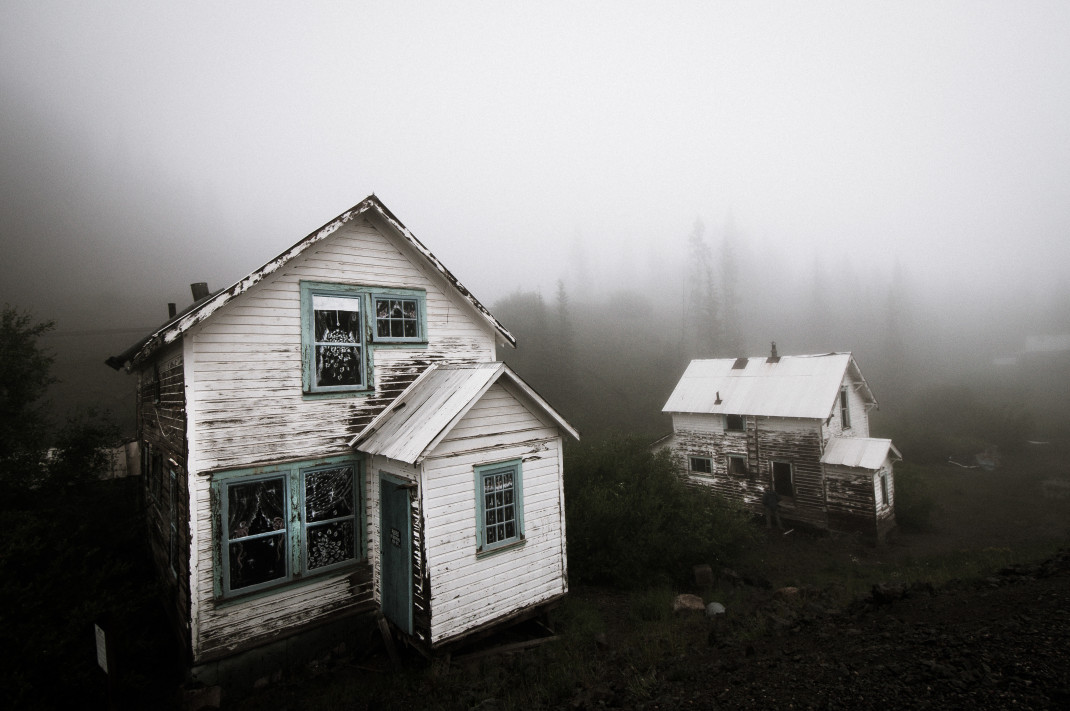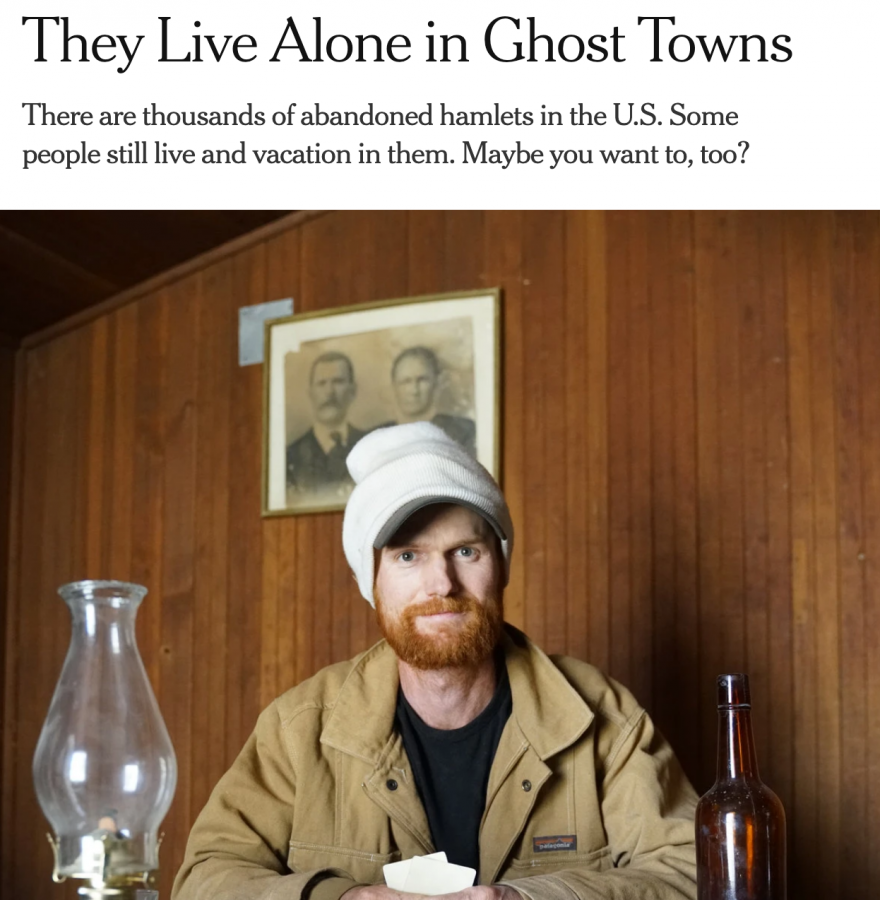My daughters are at the bar in our ghost town playing Go Fish with the rabbit. The rabbit is named Kitty and was the first pandemic purchase I made as a single mother. “Do you have a guppy?” the little one asks, and her sister, who is too old for this game, says, “Go fish!” as if she cares.
“I need to check email,” I say, because I have not yet severed the part of me that wants to know what is going on below. To do this I must hike to the top of the hill and hope for a signal.
For us it went: banana bread, red-eyed rabbit, job loss. By April we were packing boxes. I whistled and faked merriment and told the girls how all the best families got to strike out on great adventures and how when we moved back in at the end of it all we’d be better, more interesting versions of ourselves. We couldn’t go to grandparents’ houses for fear of infecting them. Our only mission was to spend less money than we made on renting the house and to stay away from human beings.
Sierra Oro was on my childhood road-trip circuit. Now I was the parent and we needed a nowhere place, an empty place, vacancy. I didn’t know if we would be too late, if someone else would already have set up camp in Sierra, but if it worked it would be perfect—empty houses, everyone else already dead.
We pulled in at night and the stars were a shocking streak of white. Had they been there all along? We had lived so long in Los Angeles’ scraped sky. I carried my daughters into the biggest house and found beds there, uninhabited and made up with blankets. We slept until dawn when the sound of a dog walking across the wooden floor woke us, though we saw no animal.
Once there were thousands of residents, now it’s the three of us, plus Kitty and fifteen partway standing buildings and a cemetery. We explore with careful footfalls and a flashlight. The bunkhouse still has the fallen-down smell of overwork. The oil of exhaustion on a few remaining wool blankets. Silver-mine dust. Elder daughter says, “I don’t like these ghosts. They’re too tired to be friendly.”
The mansion is not really a mansion but it has red brocade wallpaper and fireplaces full of nesting birds. One has a green settee that a fine lady might once have fainted backwards onto. The ghost dog sniffs through the rooms again the second night, tags jingling, nails clacking on the floorboards, a howl at the back step even though spirits don’t need open doors. He is joined by a nighttime window-rattler, but when the little one wakes and worries I tell her that the ghosts are just happy for company.
Maybe we will stay for weeks, maybe months, maybe we will live here until the children are grown. It is this unknowable time that makes me lonely.
We have plastic jugs of water and a pantry full of beans and pasta, a garlic head in an old bowl, a sewing kit on the sill. Each night for three nights we have filled the clawfoot tub with a few inches of boiled water and the girls lay back and their hair floats outward and they talk to the stain on the ceiling in the shape of a swan. Each night for three nights I wonder if we have made the right decision. Maybe we will stay for weeks, maybe months, maybe we will live here until the children are grown. It is this unknowable time that makes me lonely.
In our real house another family walks and sleeps. They make coffee, scramble eggs, bake banana bread or sourdough—still alive in the pandemic we abandoned. The parents of that family are traveling nurses, come to care for the sick in our city. They are at risk but they are solvent; we are alone in the mountains so we are not at risk and we will be solvent for longer than if we had remained civilized. Our expenses are fuel, water, simple food. When it warms up, we’ll grow a garden. I’ll buy a rifle and try to get brave enough to hunt deer. We were pressed here like a herd with a wolf on our tail, driven upward, away from the city and the coast.
I climb past the bunkhouse, the saloon, the entrance to the mine on a path of sage and chamisa to the top of the hill where even the ghost town feels lowdown, and I raise my phone up into the sky like a torch and wait for the ping of my email. I read about the case numbers, the deaths, the economy, the mountain lions getting braver as humans move indoors, the clearer air.
The nurses in our house have sent cheery emails asking, Can you remind me where the instructions for the sprinkler system are? Would it be all right if we moved your sheets from the closet and stored them so we have a place for our own? They say, Went to town for to-go coffee yesterday and the place was a ghost town.
All the obedient and afraid families hunkered down while shopping malls, restaurants, school buildings, cafés are empty. Down there the virus swirls, breathed into and out of lungs, tangling in heart cells, blood vessels. I look at my own ghost town. Picture my daughters in the saloon with their cards and their rabbit and their trust in me. The absolute certainty that ours are the only present-day human lives here is a comfort. Ghosts can’t infect us. At this thought, a gust of something warm cuts a straight path across the hill and I can hear breathing. Maybe it is my own, I justify. But I have room for a spirit, I think. Come on in, I think. As the ghost town has welcomed us, we will take in her ghosts. A shelter for each soul.

